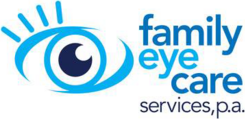Your children grow really fast, unfortunately so does their Myopia.
Poor vision can have a significant impact in your child's life and development. If your child has Myopia or you suspect you may have it book an appointment and speak with one of our Myopia experts now.
What is Myopia?
Myopia, otherwise known as nearsightedness, is a condition which causes objects to appear blurry at a distance, while generally closer objects are much clearer to see. Myopia occurs when the shape of the eye is essentially too long proportionally, so the distance between the cornea and the retina is further than it should be. This means when the light enters the eye, it is focused before it reaches the retina, which causes blurred vision. It can also be due to the shape of the cornea or the thickness of the lens inside the eye.
Myopia is one of the most common vision problems worldwide, affecting almost 30% of the American population, and its incidence is increasing rapidly.
What causes Myopia?
The exact cause of Myopia is not known, but it is believed to be a combination of genetic and environmental factors. Some of the factors that may contribute to Myopia include:
More screen time
Less outdoor activities
Prolonged near work
Urbanization
Medical Factors
Genetics
Are members of your family myopic? If so, don't hesitate, schedule an appointment now.
How to spot the signs of Myopia
- Headaches
- Tired eyes
- Regularly rubbing their eyes
- Needing to get close to screens
- Struggling to see distant objects
If your child is showing any of these symptoms, book an appointment now.
How myopia could affect your child
Myopia can have a significant impact on a child's daily life and their overall development
Learning
Myopia can make it difficult for a child to see the whiteboard or projector screen in a classroom, which can affect their ability to learn and take notes, which may lead to a reduced ability to perform well in school and a decreased overall academic performance.
Sports and physical activity
Myopia can make it difficult for a child to participate in sports and other physical activities that require good visual acuity, such as basketball, tennis, and soccer.
Outdoor activities
Children with Myopia may avoid outdoor activities and spending time in nature, as they have difficulty seeing distant objects clearly. This can impact their overall health and well-being.
Socialization
Children with Myopia may have trouble seeing their friends or participating in group activities, which can affect their socialization and self-esteem.
Safety
Myopia can make it difficult for a child to see hazards and obstacles in their environment.
Myopia Management options for your child
While there’s no cure for Myopia, there are some treatments which may slow down its progression in children and young teens. This is called Myopia Management.
Myopia can be easily corrected with glasses or contact lenses. At Family Eye Care Services, we also offer MiSight® 1 day contact lenses which have been proven to slow the progression of Myopia.
If you notice your child is displaying any of the signs or symptoms above, don’t worry – book them in for an eye test and our team will find the best option for you and your child.
To discuss the best Myopia Management option for your child speak with one of our myopia experts.
Schedule a Myopia Management Consult
If you're concerned about the progression of your child's Myopia, please schedule a Myopia Management consultation appointment. It's better to intervene early then wait until their vision is too far progressed where we may not have as many management options.
